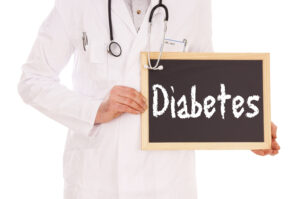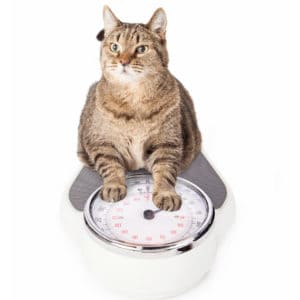 It’s normal to feel worried when your cat is diagnosed with diabetes. But please don’t feel too alarmed – the right nutrition and veterinary care can help your beloved kitty live its very best life, diabetes or not. By picking the best cat food for diabetic cats, you may even be able to reverse Type II feline diabetes, and you’ll certainly be able to help your cat manage its symptoms with the minimal of fuss.In this article, we explore the different products available for cats with feline diabetes. Our team reviews the best food for diabetic cats – wet and dry – and gives you all the advice you need to look after your kitty in the best possible way.
It’s normal to feel worried when your cat is diagnosed with diabetes. But please don’t feel too alarmed – the right nutrition and veterinary care can help your beloved kitty live its very best life, diabetes or not. By picking the best cat food for diabetic cats, you may even be able to reverse Type II feline diabetes, and you’ll certainly be able to help your cat manage its symptoms with the minimal of fuss.In this article, we explore the different products available for cats with feline diabetes. Our team reviews the best food for diabetic cats – wet and dry – and gives you all the advice you need to look after your kitty in the best possible way.
Quick Review: Top-3 Foods For Diabetic Cats
What Causes Diabetes in Cats?
Diabetes Mellitus is a condition that relates to blood sugar levels and insulin. When cats develop diabetes, they are suffering from an excess of glucose in their blood, which triggers makes them feel dehydrated. They may drink more water, urinate more frequently, gain weight, act lethargic and more tired, or even throw up.
There are two ways that diabetes works. Let’s take a look.
Type I Feline Diabetes
 Type I Feline Diabetes is when your kitty isn’t able to manufacture sufficient insulin. Your cat’s cells won’t be able to ‘pack away’ the sugar (glucose) in its’ bloodstream. As a result, your cat suffers from high blood glucose, also known as hyperglycemia.
Type I Feline Diabetes is when your kitty isn’t able to manufacture sufficient insulin. Your cat’s cells won’t be able to ‘pack away’ the sugar (glucose) in its’ bloodstream. As a result, your cat suffers from high blood glucose, also known as hyperglycemia.
Symptoms of Type I Feline Diabetes include, but aren’t limited to:
- Increased urination;
- Drinking water more frequently (usually much more frequently);
- Crankiness or short-tempered behavior; and
- Altered appetite – usually your cat’s appetite will grow, and it will seem to be hungry all the time.
Type I diabetes is usually treated with insulin injections, a low-glucose or low-carbohydrate diet, and regular monitoring of your cat’s blood sugar.
Type I Feline Diabetes
Type II Feline Diabetes is much more common than Type I diabetes, especially in obese or indoor cats. When a kitty has Type II diabetes, it does produce insulin, but its cells do not react to it in the proper manner.
Symptoms of Type II Feline Diabetes include, but aren’t limited to:
- Heightened thirst – your cat will drink more;
- Constant urination;
- Bodyweight changes – typically, your kitty will gain weight;
- Appetite loss or throwing up; and
As you can see, both types of Diabetes Mellitus have similar symptoms. This is just one of the reasons why it’s so crucial to get a vet’s advice if you suspect that your cat may be diabetic. Your cat’s vet will be able to recommend the best food for diabetic cats and can help you create a plan for the proper care and management of his symptoms.
Finding the Best Diabetic Cat Food
- With so much to remember, where do we begin? Fortunately for you, fellow cat owners, the market is packed with great products that can alleviate your kitty’s symptoms, reduce its risk of complications, and enhance its quality of life.
- So what should you look for in the best food for diabetic cats?
Low Carbohydrates, High Protein Content
- In diabetic cats, blood sugar levels are directly related to their carbohydrate intake. Carbohydrates break down into glucose, and thus – a high-carbohydrate diet can be difficult for your kitty’s body to process.
- If your cat is diagnosed with diabetes, the following tips are important to remember:
- Your cat needs a controlled diet. Do not free-feed your fluffy feline unless you have been advised to do so by a medical professional. Instead, you should be feeding your cat with the best diabetic cat food possible, in regulated portions and accordance with a proper feeding schedule. If your cat requires insulin injections, this will help you stick to an appropriate schedule for monitoring his blood sugar and administering insulin.
- Cut down on the carbs. The best food for diabetic cats will have a carefully-calculated proportion of carbohydrates, decreasing the likelihood of any dangerous blood sugar spikes in your best friend.
- Increase protein. Protein helps all cats build and maintain the muscle they require to be healthy and happy. It also helps them to feel satiated when you are feeding them fewer, controlled meals.
Of course, every cat is different. Your particular kitty may have a preference for zero-grain food, for limited ingredients, for salmon, or for tender duck – whatever works for your little kitty, you’ll find it in our reviews!
How often to feed a diabetic cat?
The frequency in which you feed a diabetic cat will be a huge factor in how well their diabetes can be maintained. Since diabetes is a condition that relies entirely on a cat’s blood sugar, it’s important to make sure you create a schedule in which your cat’s blood sugar can be predicted and controlled.
When a cat is diagnosed with diabetes, they will then be prescribed a set amount of insulin that should be administered every 12 hours. In order for this to be an adequate treatment to manage their blood sugar, they will need to receive the same diet each day, and be fed at the exact same time each day as often as possible.
When a cat is diagnosed with diabetes, it’s best to feed them twice daily, about 30 minutes before you administer their insulin. It’s important to only feed them a set amount twice daily, as any diet change can have a huge affect on their blood sugar throughout the day.
If you have a diabetic cat, never give them their insulin until they have eaten their meal. If you give insulin when a cat’s blood sugar is low due to not eating, this can send them into a diabetic coma. If your cat did not eat their meal for whatever reason, make sure to call your vet before you administer their insulin.
Best Food for Diabetic Cat: Brands
Searching for dependable brands that make the best diabetic cat food? Here’s our list of some brands that you can trust and rely on, from Blue Wilderness to Solid Gold to Hill’s Prescription Diet. Check out these top-notch manufacturers and tell us which one your cat likes the best:
- Blue Buffalo Wilderness High Protein;
- Halo Spot’s Stew;
- Purina Pro Plan Dietetic Formula;
- Instinct Original Grain-Free;
- Nutrisca Low-Carbohydrate High-Protein;
- Ziwi Peak Grain-Free; and
- Merrick Backcountry Grain-Free.
Best Dry Cat Food for Diabetic Cats
- Blue Buffalo Wilderness High Protein Grain Free, Natural Adult Dry Cat Food, Chicken
Pros
- Uses rich-in-antioxidant ingredients, including kelp, vegetable juice, and sweet potatoes;
- Gives your little kitty a wholesome 40% protein so they feel full for longer and create strong muscles;
- Includes Omega fats from egg, fish meal, and ingredients such as flaxseeds;
- Helps your cat maintain a healthy and manageable weight through added fiber; and
- Features chelated minerals, which are easy for your feline friend to absorb and use.
Cons
- We love Blue Wilderness – according to us, it’s perfect!
- NUTRISCA Potato-Free, Low-Carbohydrate, Grain Free, High Protein Dry Cat Food for Cats and Kittens
Pros
- Doesn’t use any synthetic dyes, colors, or preservatives;
- Includes quality meat products such as Menhaden meal and authentic salmon;
- Fortified with essential vitamins, minerals, and natural ingredients like fish oil for DHA;
- Gives your cat 16% fat and 36% protein; and
- Includes fruits and antioxidant-rich fruits for an immune system boost.
Cons
- Apparently, some owners found that this food smelled strongly in the house!
- Purina Pro Plan Veterinary Diets DM DM Dietetic Management Dry Food
Pros
- Ripe with antioxidants from supplements and with a balanced diabetic cat formula, here is a recipe to help your cat fight off disease;
- Contains very high levels of protein – 51%; and
- Includes essential Vitamin E to take care of your cat’s skin and fur.
Cons
- This recipe’s first ingredient is by-product meal, which is generally considered inferior to real, whole meats; and
- It uses some sub-par filler ingredients such as soy protein isolate and corn gluten meal.
- Halo Spot’s Stew Cat Formula Grain-Free Hearty Chicken Recipe
Pros
- Uses plenty of fiber to promote better digestion and improve your kitty’s gut health;
- Features natural sources of Omega fats, such as egg, chicken fat, and flaxseeds;
- Includes L-Carnitine, a great way to enhance your fluffy friend’s metabolism and facilitate the movement of nutrients in the blood;
- Does not use any GMO vegetables, and uses only sustainable fish products; and
- It helps to keep your cat’s glucose levels in check.
Cons
- Some cats with sensitive stomachs do not do well with this formula.
Best Wet Food for Diabetic Cat
- Royal Canin Glycobalance Morsels In Gravy
Pros
- Recommended diet by veterinarians
- High protein count
- Low carbohydrate count
- Tasty flavor that cats love
Cons
- It was really difficult to find a single bad review for this diet. Cats seem to love it, and it appears to be an effective option for managing a cat’s blood sugar.
- Ziwi Peak Grain-Free Canned Cat Food Recipe
Pros
- Includes nutrient-rich tripe and exclusive green mussels for an anti-oxidant boost that will support your cat’s immune system;
- Filler-free, sugar-free, and made without fake preservatives, Ziwi Peak is a natural, premium option that will satisfy picky eaters;
- Includes a whopping 92% animal organs and meat for maximum protein and minerals;
- Totally grain-free, this is perfect for diabetic cats who need to stay away from excess carbohydrates and glycerin; and
- Offers 10% protein in every serving to maintain your cat’s muscle mass.
Cons
- Ziwi Peak is a top-of-the-line recipe that might be considered expensive by some owners.
- Instinct Original Grain Free Recipe Natural Wet Canned Cat Food
Pros
- Uses only a very select few quality ingredients, making it ideal if your kitty has a food intolerance;
- Includes 95% turkey liver and duck, making it rich in nutrients and protein;
- Doesn’t contain any potato, soy, or fake colors and preservatives;
- Cage-free, humane duck is the main ingredient in this diabetic-friendly recipe; and
- It helps to encourage healthy weight maintenance, which is important for diabetic cats.
Cons
- According to reviews, some picky cats aren’t fans of this recipe.
- Merrick Backcountry Grain Free Wet Cat Food
Pros
- Gives your grown cat 9% protein, helping to nourish and support their muscles while ensuring they feel satisfied;
- Includes glucosamine- and Omega-fat-rich salmon oil, to look after your cat’s joints and keep their fur looking shiny;
- Uses chelated minerals to promote better nutrient absorption;
- Low in fat, helping your kitty maintain a healthy weight; and
- It’s ideal for outdoor and less active indoor cats alike, as part of a balanced diet.
Cons
- None that our team was able to spot – although it contains beef, which some cats cannot tolerate.
FAQ
What should you feed a diabetic cat?
If you have a diabetic cat, there are some factors that you will need to consider on their food intake and frequency in which they are fed.
Like we already discussed, it’s important to stop free feeding your cat if you are currently free feeding. A diabetic will need to be fed the same amount of food, twice daily (ideally).
Though your veterinarian will often recommend a suggested diet for you, it’s good to have an idea of what should be expected in a proper diabetc diet. The best diets for diabetic cats will have limited carbohydrates, will have a high protein count, and have a controlled fat and calorie content since many diabetic cats are overweight.
What’s the first thing I should do if my cat has diabetes?
Good question. If you have noticed some potential signs of diabetes in your cat, the first thing to do is to get him checked out by a vet. With a professional diagnosis, you can get expert advice on how to continue giving him the very best care possible. There is no reason why your kitty can’t thrive and flourish with the right care!
If your cat has been diagnosed with Type I feline diabetes, you will then need to check his blood glucose levels on a regular basis. You might also expect to receive some new, different feeding guidelines from his vet, and you may even need to start injecting your pet with insulin. Regardless of what treatment the vet recommends, you will likely need to switch to the best diabetic cat food you can find. By keeping your pet’s blood sugar within a manageable range with fewer carbs and more protein, you’ll be able to reduce his risk of developing hyper- or hypoglycemia.
Do I need to inject my cat if he has Type II diabetes?
Not necessarily. Type I and Type II Diabetes Mellitus have different underlying causes, and if your cat is living with the latter, you do not always need to administer insulin to your best friend. Type II diabetes is the result of the body’s cells failing to react properly to insulin – and it’s by far the most common type of diabetes. Sometimes, it can be treated with short-term injections of insulin, but please always make sure you ask a veterinarian.
You should always get a vet’s advice when it comes to managing feline diabetes, but the usual treatments for Type II feline diabetes include:
- Feeding your kitty a holistic, balanced diet;
- Keeping a close watch on his symptoms, looking out for signs such as excessive thirst, weight gain, and food intake; and
- Switching to an appropriate cat food for diabetic cats.
Helpful Links
- https://www.hillspet.com/cat-care/healthcare/cat-diabetes
- https://www.vet.cornell.edu/departments-centers-and-institutes/cornell-feline-health-center/health-information/feline-health-topics/feline-diabetes



